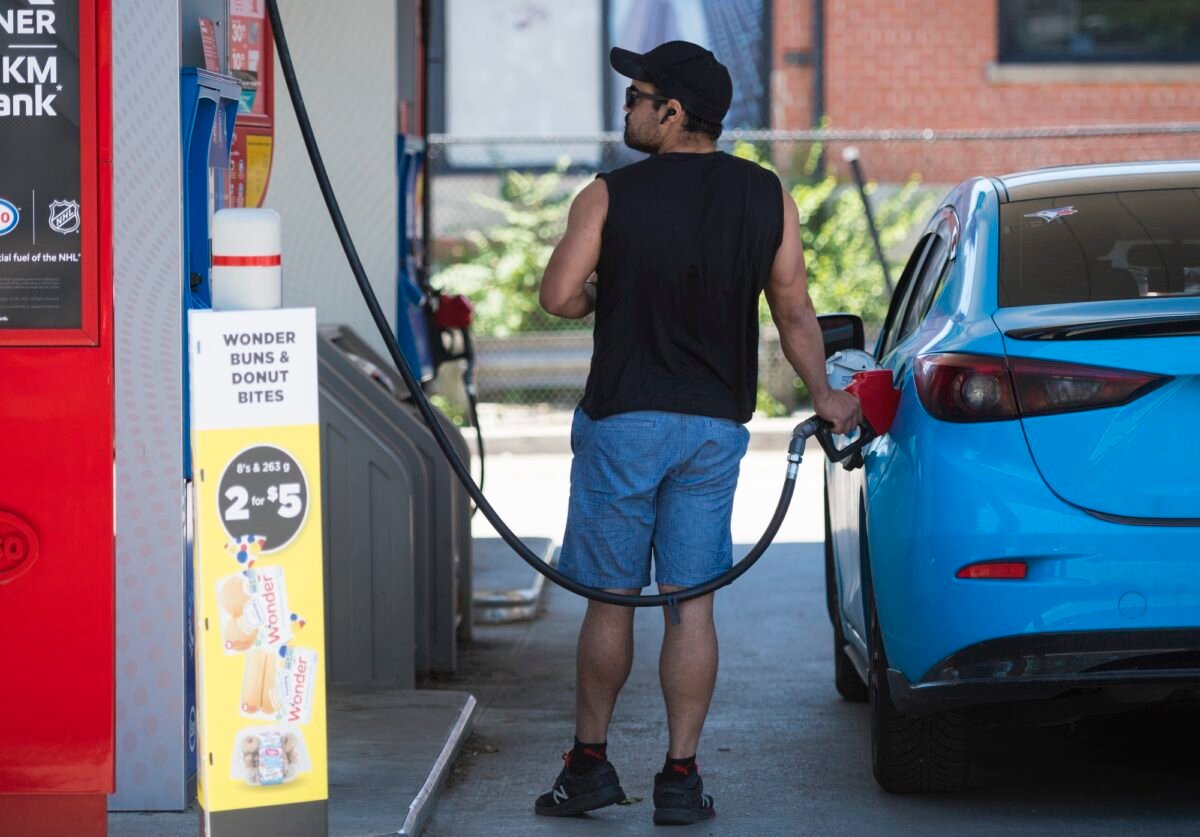New Clean Fuel Regulations Come Into Effect July 1 – How Much Will Gas Cost?

On the path to reaching net zero emissions by 2050, the Liberal government will impose new standards for fuel this coming July 1.
Consumers are unlikely to notice an immediate difference at the pump, but there will be an incremental impact over the next few years.
Environment and Climate Change Canada (ECCC) estimates that its new Clean Fuel Regulations (CFR), when fully implemented in 2030, will have brought the price of gasoline up to 17 cents per litre and diesel 16 cents per litre.
On top of the current carbon tax, this means consumers could end up paying close to 60 cents more per litre by 2030.
The CFR is replacing the Renewable Fuel Regulations and seeks to reduce the emissions intensity of fuels by 15 percent.
ECCC is adopting the policy to encourage investments in new technologies and the development and adoption of fuels containing less carbon.
Producers will be required to increase the amount of fuel derived from agricultural crops in gasoline and diesel, in order to lower their carbon intensity incrementally for each passing year.
The new regulations also establish a credit market for fuel producers and importers in which they’ll be able to create or buy credits to comply with the requirements.
The incurred cost for the businesses to adopt these new standards is likely to be passed on to the consumer, but Environment Minister Steven Guilbeault says there is “simply no reason that they need to push costs onto consumers on July 1.”
“Oil companies and refiners have the time and the ability to invest to update their operations to meet the very small, incremental costs that the Clean Fuel Regulations require,” he said in a May 26 statement to The Epoch Times.
ECCC says that the CFR will help to remove up to 26 megatonnes of greenhouse gas (GHG) emissions in 2030, which is equal to removing about two weeks of GHG from the Canadian economy.
It will also decrease the real Gross Domestic Product (GDP) by up to 0.3 percent or $9 billion.
Reaction
The Parliamentary Budget Officer (PBO) has called the new regulations “broadly regressive” relative to household disposable income.
“Since lower income households generally spend a larger share of their income on transportation and other energy-intensive goods and services compared to higher income households, on average the Clean Fuel Regulations will have a greater impact on these households,” said PBO Yves Giroux in a May 18 statement.
He estimates that at the national level by 2030, the cost of the new regulations on households will range from $231 (or 0.62 percent of disposable income) for lower-income households to $1,008 (or 0.35 percent of disposable income) for higher-income households.
The PBO also said that provincial economies that are more involved in fuel production or transformation will be disproportionately affected.
This point was noted by Atlantic premiers at the end of May after their meeting with Guilbeault, who requested a delay in the implementation of the new regulations.
In a joint statement, they said they were concerned the “detrimental and disproportionate impact they will have on Atlantic Canadians.”
“These increases will further add to inflationary pressures that will increase the costs of other goods imported to the region.”
Guilbeault responded by saying that refineries in Atlantic Canada are “reaping whopping new profits and have the ability to be part of the solution.”
Saskatchewan Premier Scott Moe added his voice to those of his Atlantic colleagues this week, also asking for a delay “to ensure that the minister is doing proper and appropriate consultation,” he said, according to CBC.
The Conservative Party has called the new regulations a “second carbon tax” and tabled a motion last week in the House of Commons to call for their cancellation but it was defeated. The Bloc Québécois and the NDP are aligned with the Liberal government’s policies on the matter.
The carbon tax goes up every new financial year and increased from $50 to $65 a tonne on April 1. This raised the price of gasoline by 14 cents, according to figures from the Department of Finance.
With the yearly increments, the carbon tax could add close to 40 cents per litre of gasoline by 2030, according to the Canadian Energy Centre.




